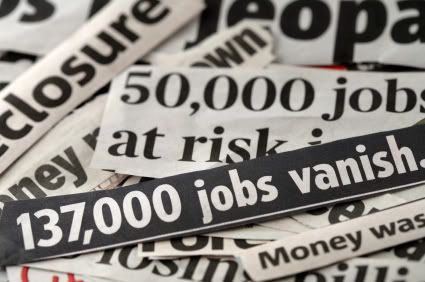“N.J. Gas Station Workers Cheated Out of Pay to Get $1M in Back Wages.” That was a headline in the New Jersey Star-Ledger. It's a classic tale of big, bad business trying to stick it to the little guy. And this time, the little guy prevailed with help of crack law enforcement.
But is that really the story?
Maybe. But maybe not. What we know is that in 2011 the Department of Labor found that scores of gas station owners in the Garden State (where self-service is outlawed to protect gas station attendant jobs) failed to comply properly with the Fair Labor Standards Act, including paying over-time to some eligible workers. In some instances, bosses probably were trying to skirt laws about how much workers must be paid, and reports suggest some workers were being paid off-the-books.
There's no excuse for circumventing tax laws or ignoring minimum wage requirements. However, in many of these cases, rather than big, bad, greedy industrialists exploiting poor workers, the gas station owners themselves could just as easily be cast as the “little guys,” struggling to make sense of complicated, antiquated regulations imposed by the real lords of power in the modern economy—the government.
Sal Risalvato, director of the New Jersey Gasoline, C-Store, Automotive Association explained that many gas station owners who were found out-of-compliance lack professional payroll departments and were simply trying to simplify their record-keeping hassles. They weren't short-changing their workers. Many were paying more than they were legally compelled to, but had just failed to follow the precise calculations of the law.
Risalvato prudently said he was glad that the Department of Labor will soon hold training seminars to help gas station owners understand the nuances of what's required by law. And, sure, it's nice for government to offer such assistance, but the very need for such training programs exemplifies the big-picture problem: Government rules have become so complicated that would-be entrepreneurs can't start businesses and small business owners have to dedicate their afternoons to learning the ins and outs of bureaucratic red tape, rather than actually working to provide services and create jobs.
This is not the recipe for a dynamic economy and robust job creation. Yes, Americans want some basic government oversight to ensure basic workers' rights are protected and workplaces are safe. Yet it's increasingly clear we've gone too far in allowing government to micromanage the minutiae of business-life.
The Fair Labor Standards Act is an ideal example of our current, often antiquated, regulatory regime. FLSA was enacted in 1938 during the Great Depression. Back then, most jobs could be easily categorized; work was typically performed for certain hours during the day, at a specific place of employment. That's not so today, which makes it a challenge to apply many of FLSA's out-dated concepts.
FLSA, for example, requires that non-exempt employees receive a minimum wage (currently $7.25) and time-and-a-half for time worked in excess of 40 hours per week. Employers must carefully monitor exactly how much times these employees work in order to comply. Exempt workers—generally white collar, professional workers—who receive a set salary rather than an hourly wage operate differently, and don't necessarily accrue over-time.
So who can companies safely put on salary? The Department of Labor requires that exempt employees' work must involve the “consistent exercise of discretion and judgment.” How does this apply to accountants, computer technicians, and other engineers, whose valuable technical skills command far more than minimum wage, but whose early work is often closely supervised and focused on following complicated procedures and protocols? Are they exercising discretion and judgment?
Employers face an equally difficult challenge in deciding exactly what constitutes “work.” Does checking email from home count? What about other time spent on company-owned computers or other electronic devices? What about commuting time?
Most troublingly for those who care about work-place flexibility, working from home opens a Pandora's box of question, since at-home workers typically blur the lines of work and home life. Such flexibility can be a boon to workers—particularly women who often crave positions that allow them to be available for kids during the traditional work day. But if at-home work creates major administrative hassles—and worse, potential liability exposure—many companies may simply default to disallowing at-home work entirely.
Teams of well-paid DOL bureaucrats have the luxury of noodling on questions such as how to apply Depression-era distinctions to our twenty-first century workplaces. Companies struggling to survive in this weak economy don't.
Americans understand big business boogiemen don't just pay a price for outdated regulations—workers and our entire economy suffer, too. It's past time for Congress to reform laws like the Fair Labor Standards Act so that government doesn't stifle job creation in the name of helping workers.


